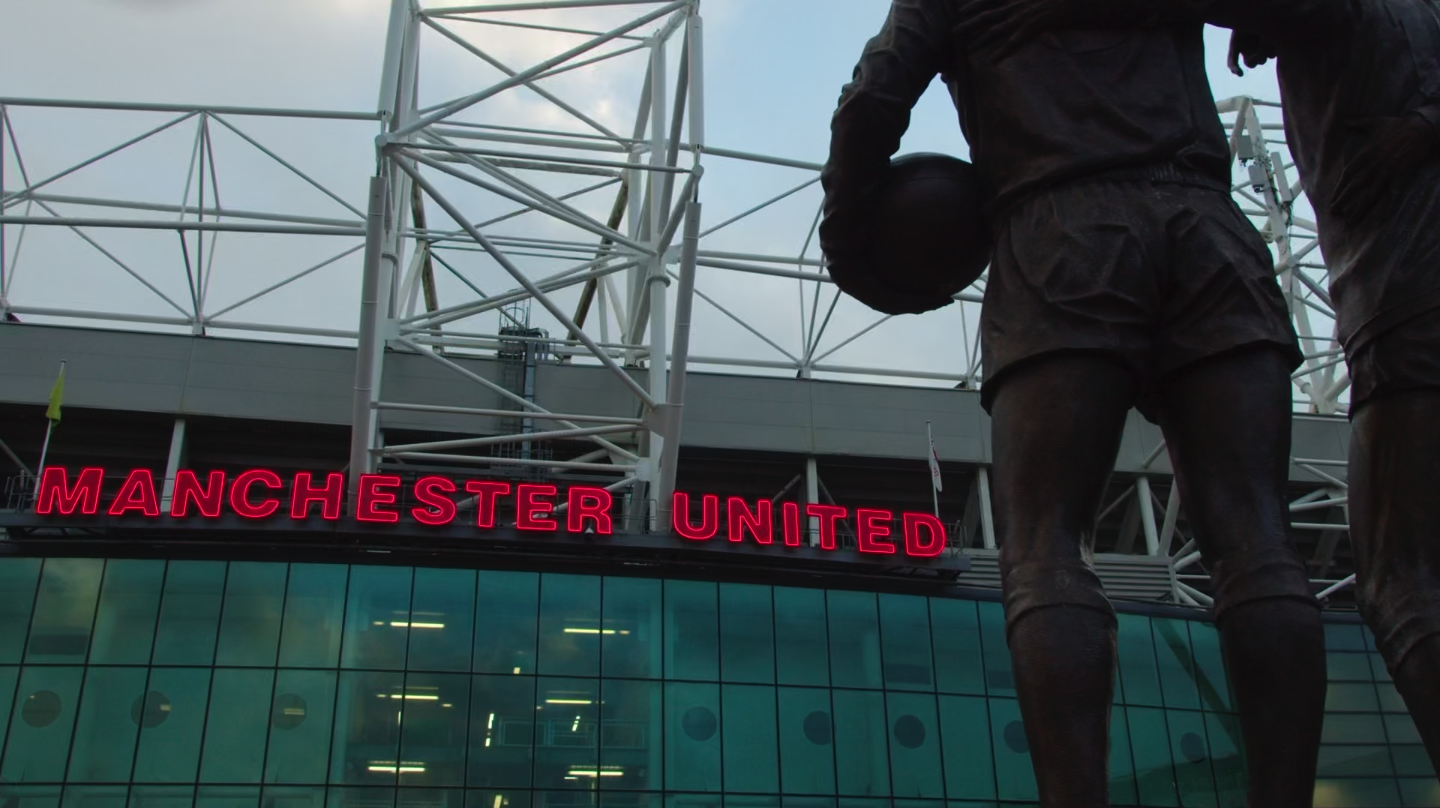How not to run a football club - Manchester United under the Glazers

The Glazer ownership of Manchester United has seemingly been a masterclass of how not to run a football club.
With the third round of ownership bidding underway, the American business tycoons appear to be on the way out of Old Trafford.
Whoever the future owners are, there are many Glazer mistakes to learn from.
How to alienate fans
The Glazers, who gained a majority ownership of the club in 2005, have never been popular with fans.
Jay Motty, a co-owner of Stretford Paddock, one of the largest Manchester United fan channels on YouTube, explained how there was a feeling the Glazers were using the club as purely a money making venture.
“They weren’t investing anything into the club,” said Motty, 43, a lifelong United fan.
“They were getting loans with huge interest rates which were secured against the club. It was dangerous ground to walk on.”
These sentiments were echoed by Laurie Whitwell, of subscription-based sports website The Athletic, as he called the Glazers’ time at United ‘purely financial’.
He said: “ Everything has trickled down into that. It’s all been about getting money into their pockets.”
The Glazers' financial focus continued to anger fans despite incredible success on the pitch.
Motty said: “There was a time in 2010 when we’d won three Premier Leagues, one Champions League, been to another Champions League final, another final the year after that.
“Yet we were still protesting against the Glazers.”
Not the signs of a healthy relationship between owners and fans.
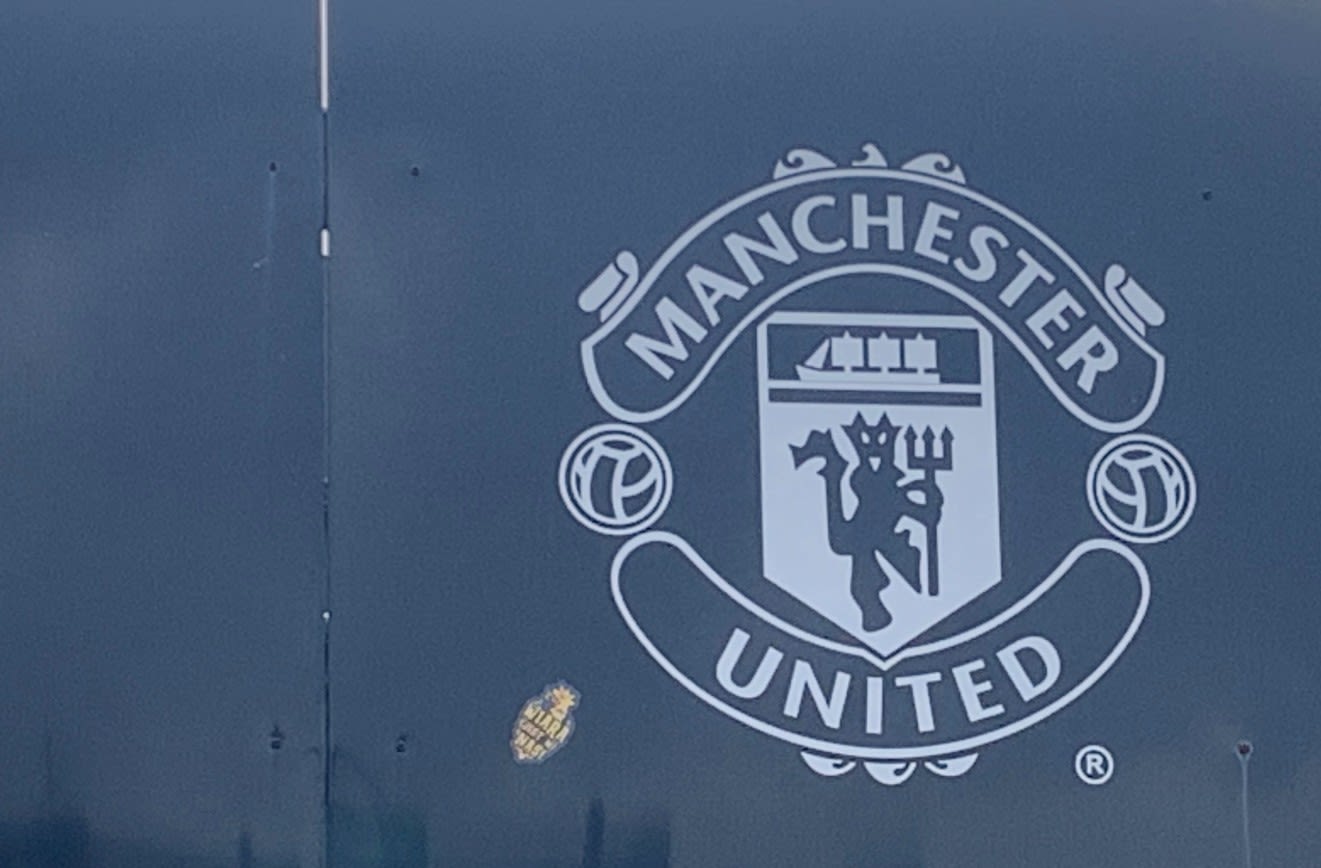
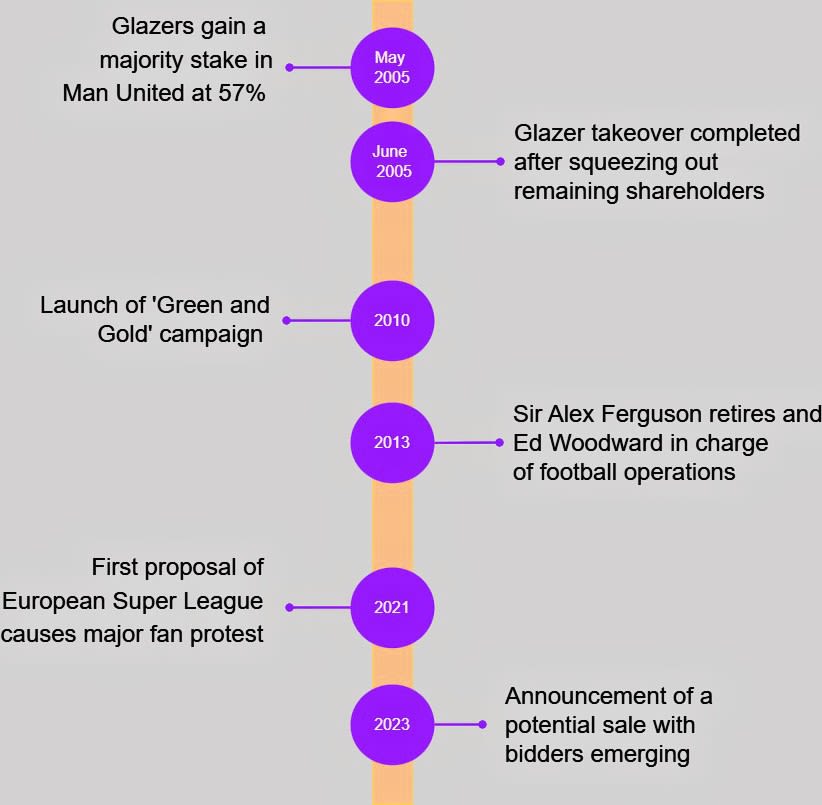
The key events in the Glazer ownership
The key events in the Glazer ownership
How to spark a riot
The infamous European Super League proposals.
A move that sparked an unprecedented anger from the fans.
A move that was seen as a pure cash grab, a reminder of Glazer greed and everything the fans were fighting against.
A move that brought a red mist over Manchester amid flares of green and gold that led to fans storming Old Trafford and cancelling a game.
“It felt momentous,” said Motty, with his 92.7K Twitter followers.
“A football match between two of the biggest clubs in the world, Manchester United and Liverpool, being postponed because the fans are angry is massive.”
Some have suggested the potential sale was caused by the fan protests which started with the Super League.
However Kieran Maguire, a football financial expert and host of The Price of Football podcast, disagreed.
He said: “I don’t think it has played a significant part in the Glazers’ decision because there has been fan pressure from day one.”
Instead he says last year’s Chelsea sale, from Russian investor Roman Abramovich to the American consortium led by Todd Boehly, was more relevant.
Maguire said: “The Glazers would have had advisors whispering in their ears, saying ‘Avram, Joel, you can make a lot of money out of this, let’s go for it.’
Regardless of the reasons behind the Glazers looking to sell, whoever comes in next cannot treat the fans the same way.
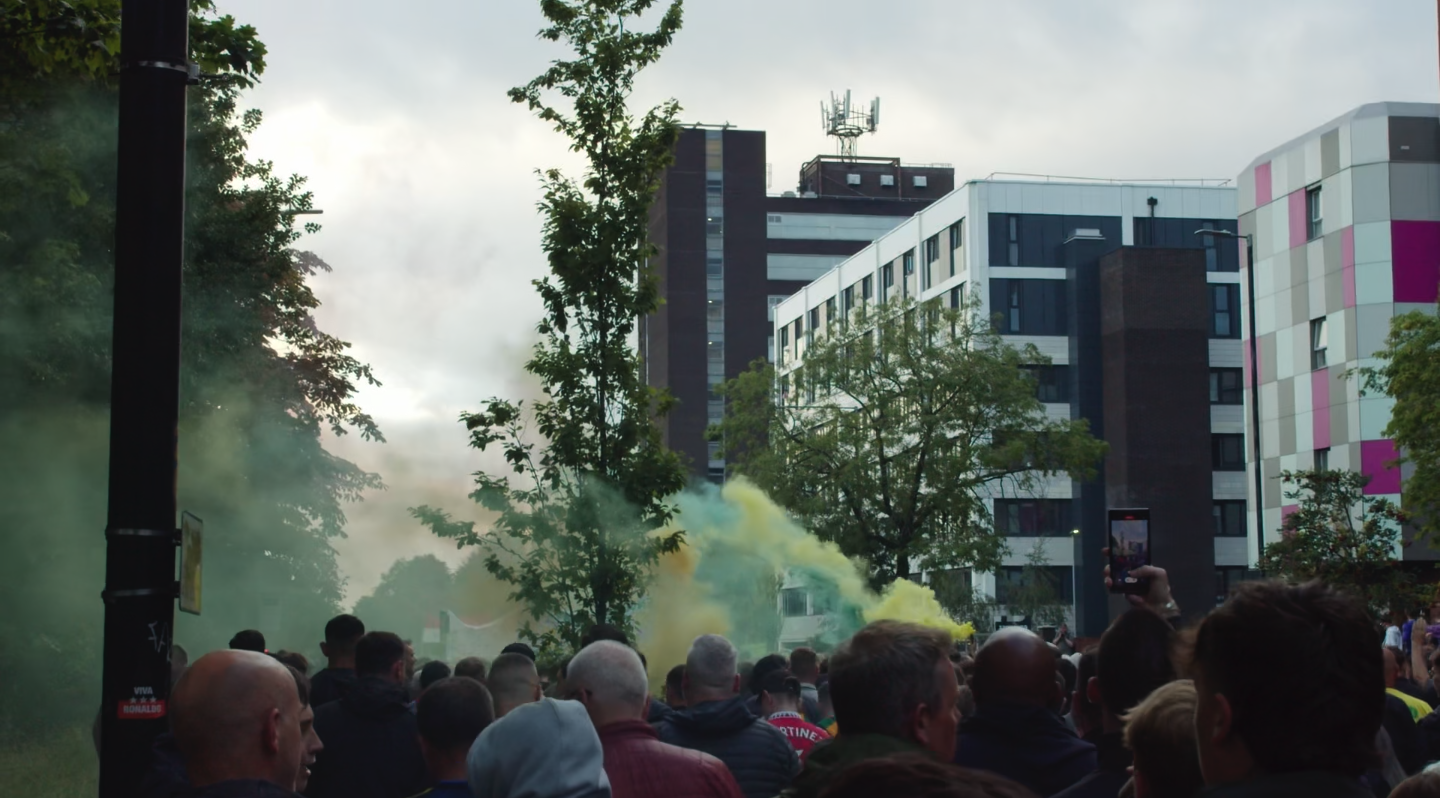
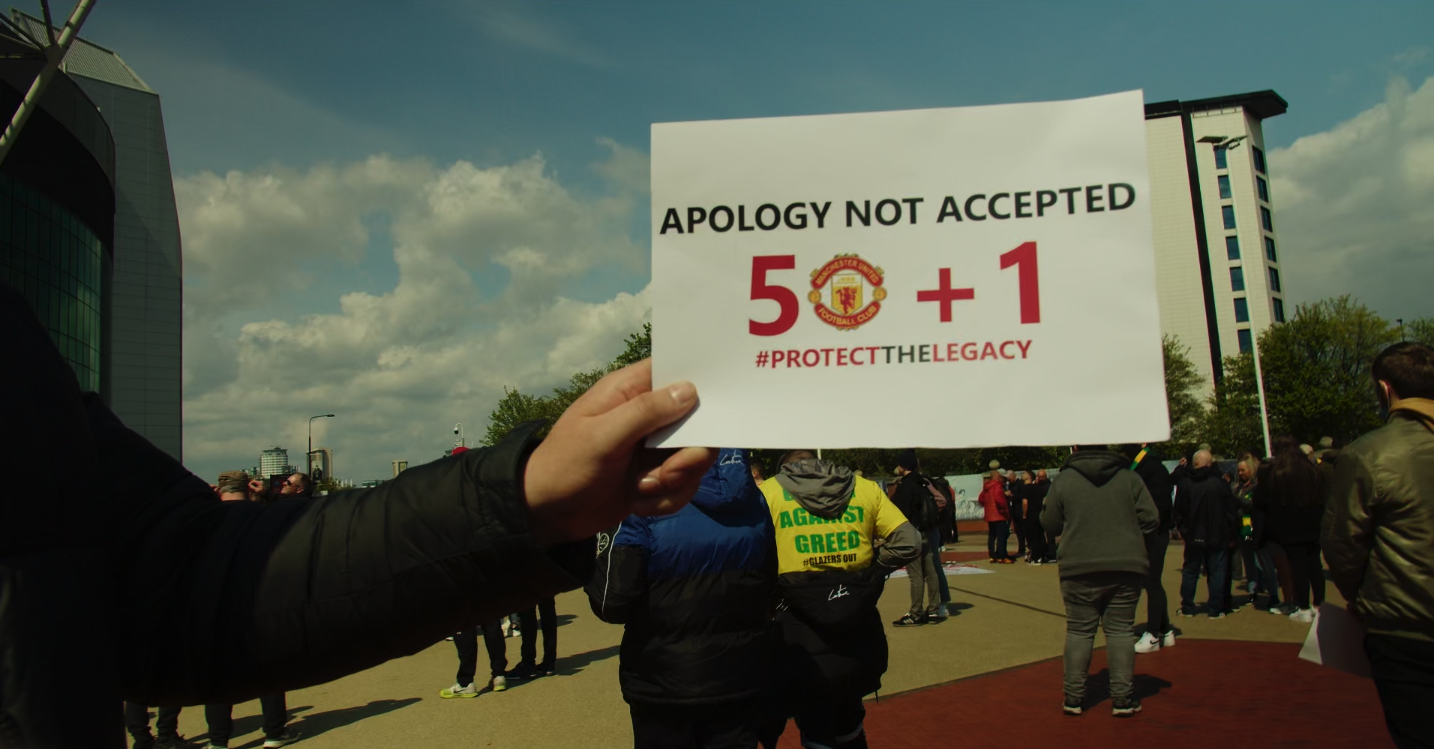
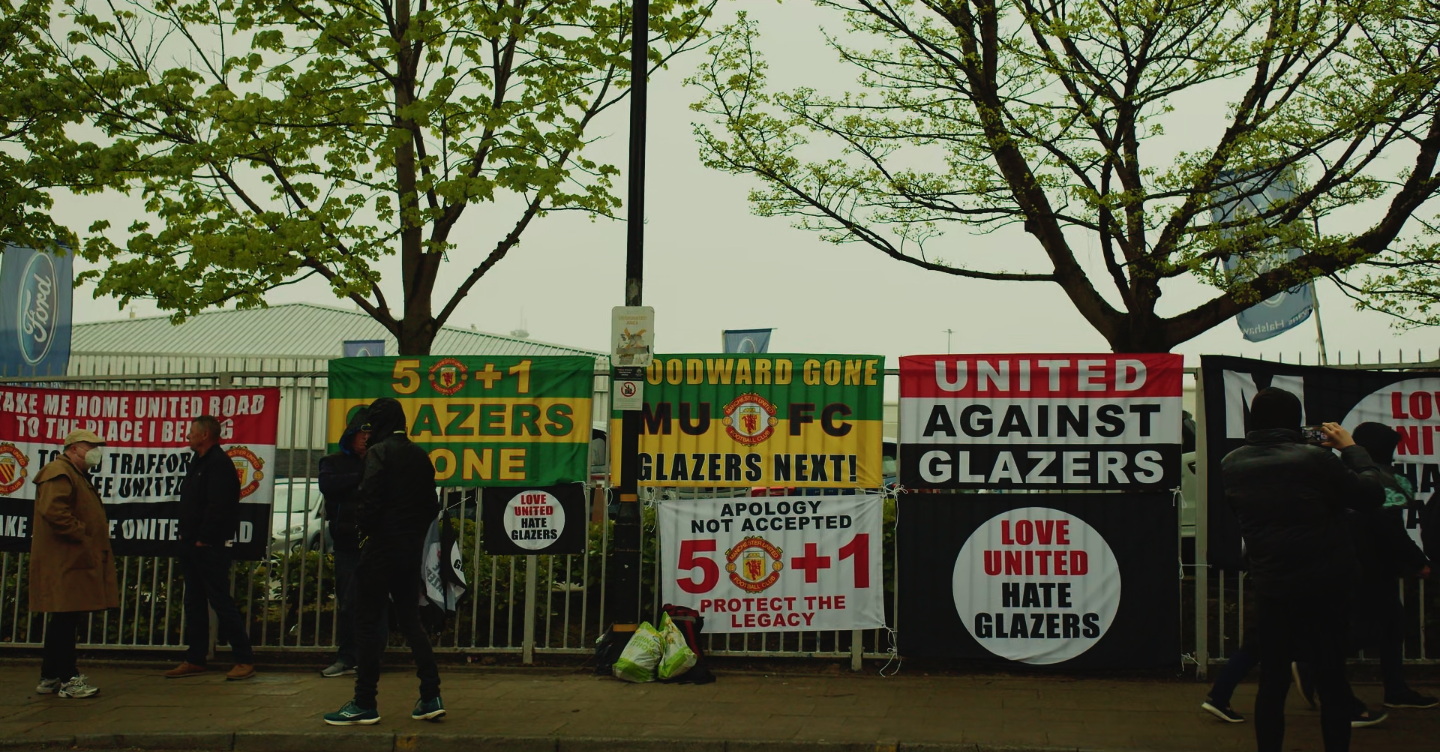
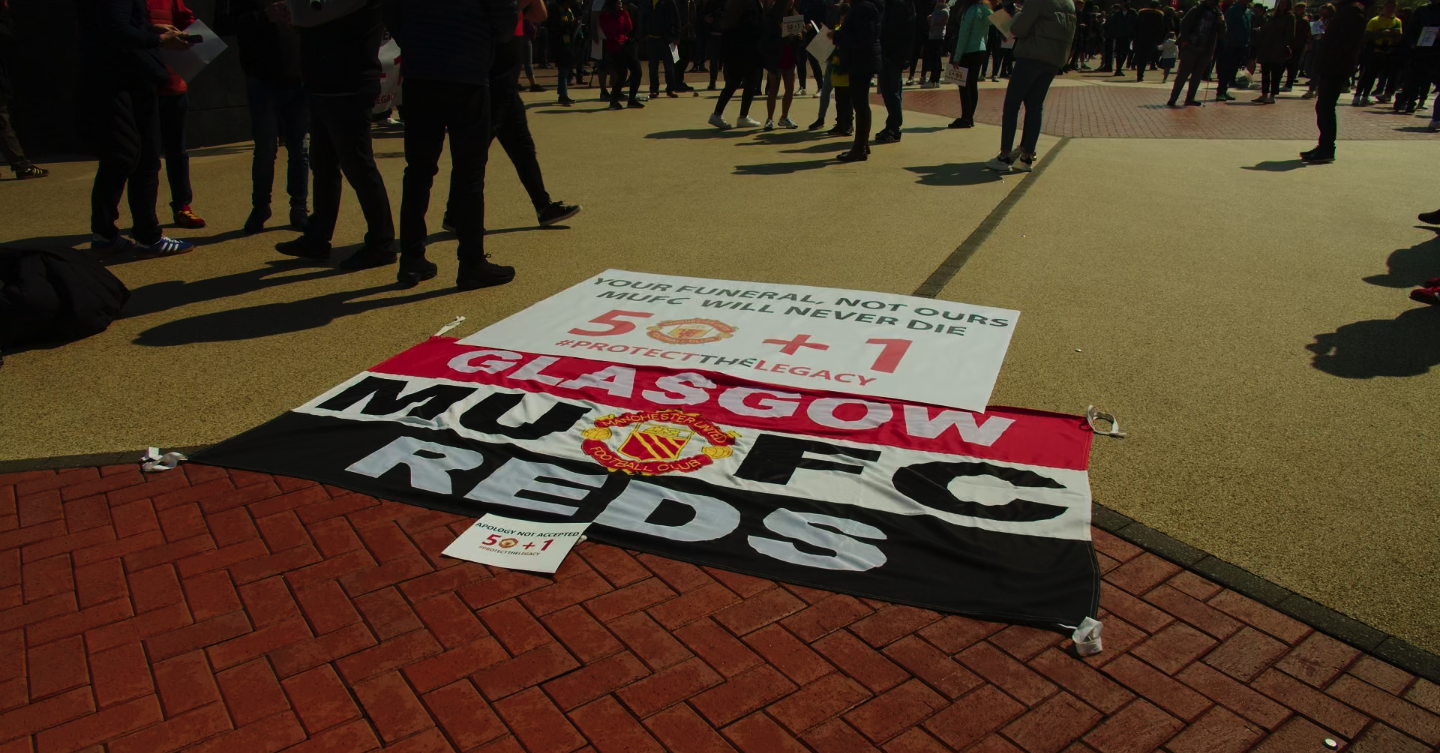
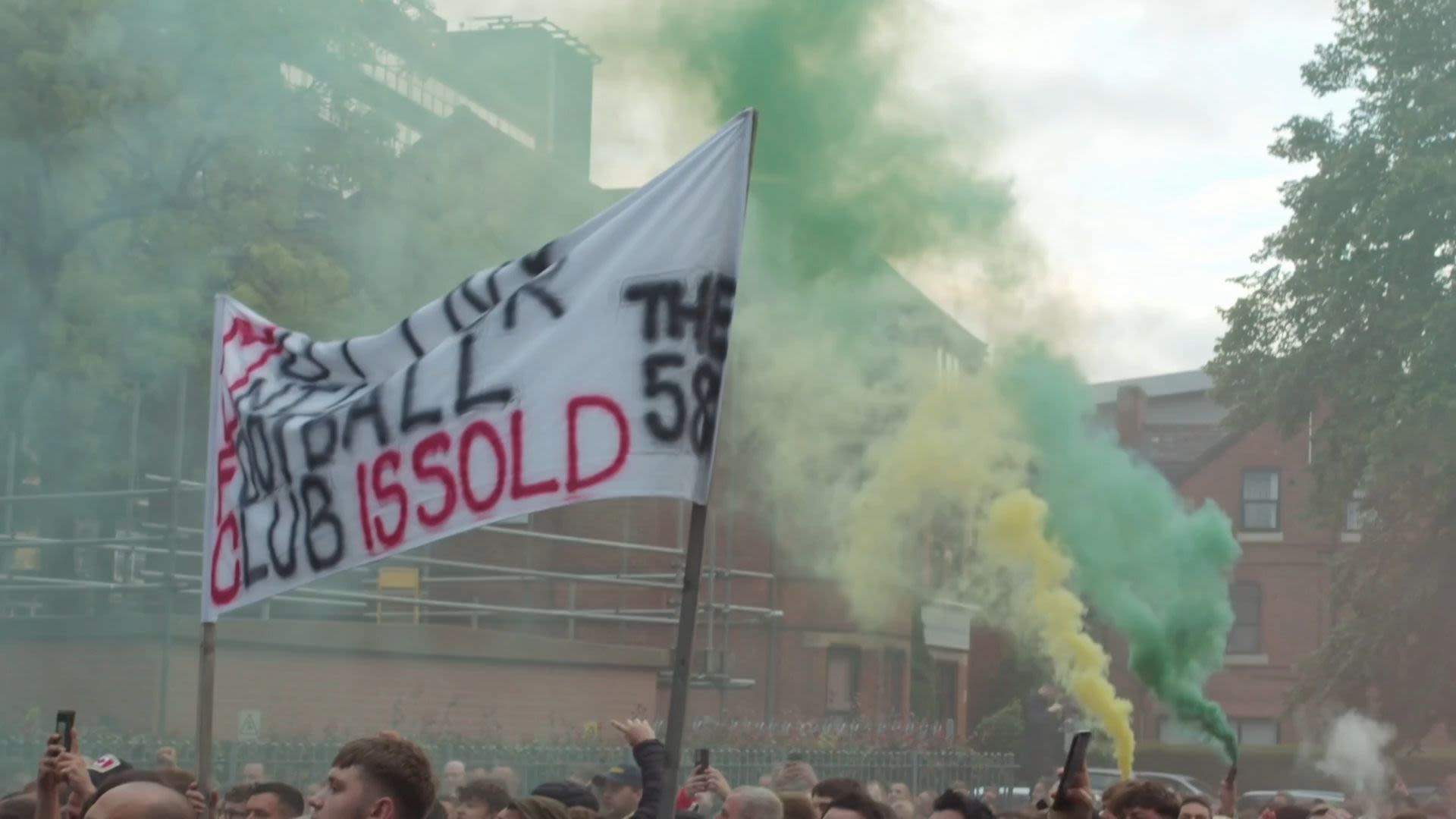


Credit: Bryn Rogers
Credit: Bryn Rogers

Credit: Bryn Rogers
Credit: Bryn Rogers

Credit: Bryn Rogers
Credit: Bryn Rogers
Credit: Bryn Rogers
Credit: Bryn Rogers
Credit: Bryn Rogers
Credit: Bryn Rogers
Kieran Maguire on the Glazer family and their future at the club
Kieran Maguire on the Glazer family and their future at the club
How to amass debt
In 2005 the Glazer family acquired a controlling majority stake in Manchester United through a leveraged buyout - their first mistake.
According to Maguire, this meant the Glazers put in little of their own money while borrowing a lot, in the hope that the value of the business increased.
A very high risk strategy.
“It was like buying a house with a 100% mortgage,” he said.
According to Maguire, the Glazers were paying up to 14.25% interest on the loans.
“These were almost credit card rates on what is supposed to be a corporate takeover” Maguire said.
These debts have loomed large over the club since 2005, explained Maguire.
They are the reason for a sporadic investment strategy.
The reason fans are not happy with their own stadium.
The reason Cristiano Ronaldo complained last year about training facilities.
If new owners are to come in they must clear the debt.
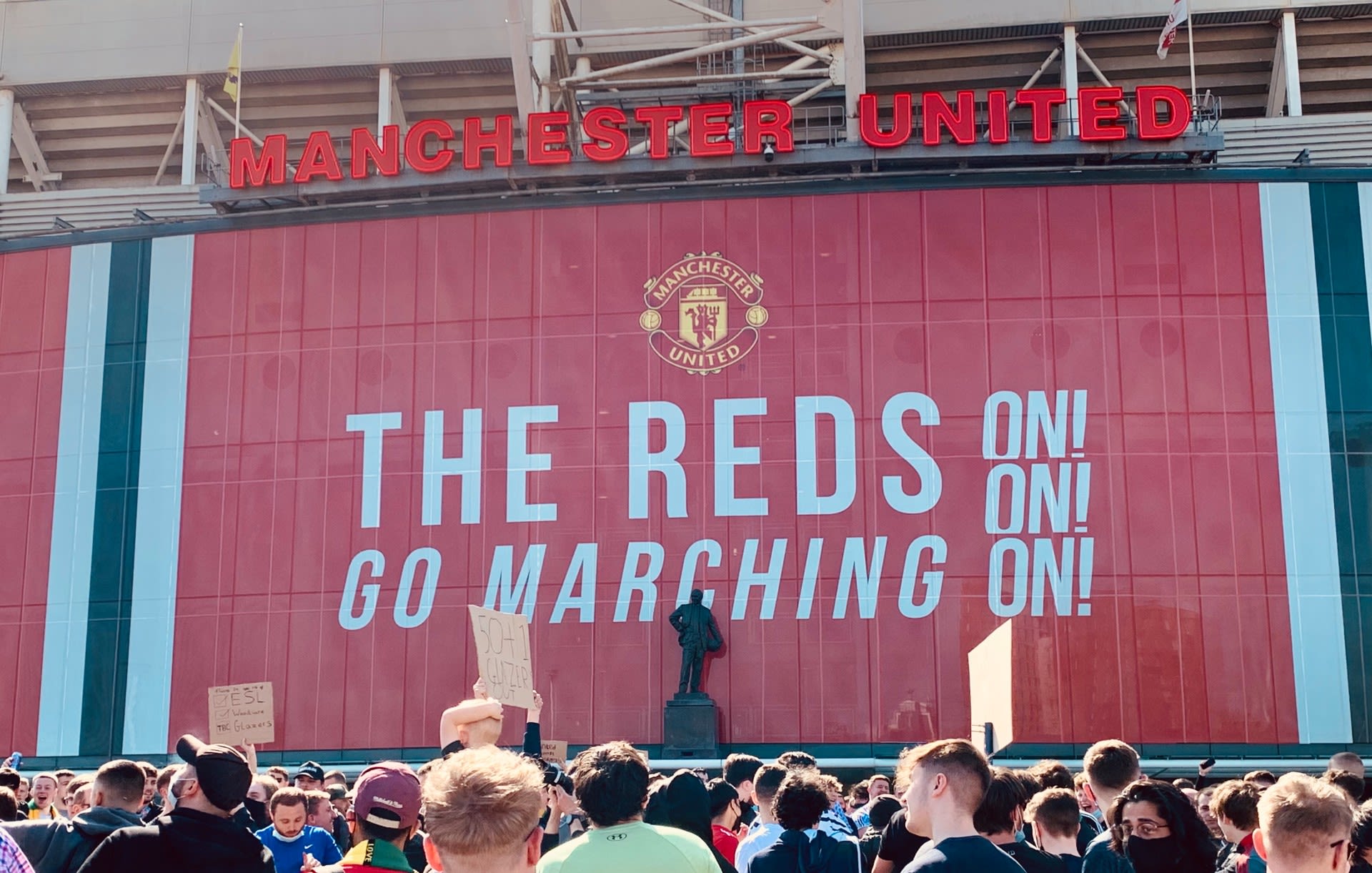
Jay Motty on why there is anti-Glazer sentiment
Jay Motty on why there is anti-Glazer sentiment
How to leave a toxic legacy
As Laurie Whitwell points out, the most important thing for an owner to have with the fans is ‘dialogue’.
“That is something the Glazers have never had,” he said.
“There is a balance between showing care and affection in the right format and being silent, which the Glazers have been since they took over.”
And a deafening silence at that.
Perhaps the Glazers prefer talking with their money.
Whitwell explains it is undeniable that United have spent big under the Glazers.
But the one thing it hasn’t been is ‘smart’ spending.
He said: “If there was an owner who was more engaged, they would appoint people in those positions of power that knew what they were talking about.
“You had Ed Woodward in that role for years and he just wasn’t very good at it.”
Recruitment aside, investment into the club’s assets have been ‘piecemeal’.
He said: “There’s not been that big picture idea of improving the stadium by 10-20 thousand fans. Or just upgrading the stadium so it feels more modern.
“It’s been needing work on it for a long time. But because of the debt, it was a case of trying to keep hold of it and not think about the infrastructure. That is the legacy of how they took over the club in the first place.”
And what a legacy it is. A legacy that United fans pray is not repeated under new owners.
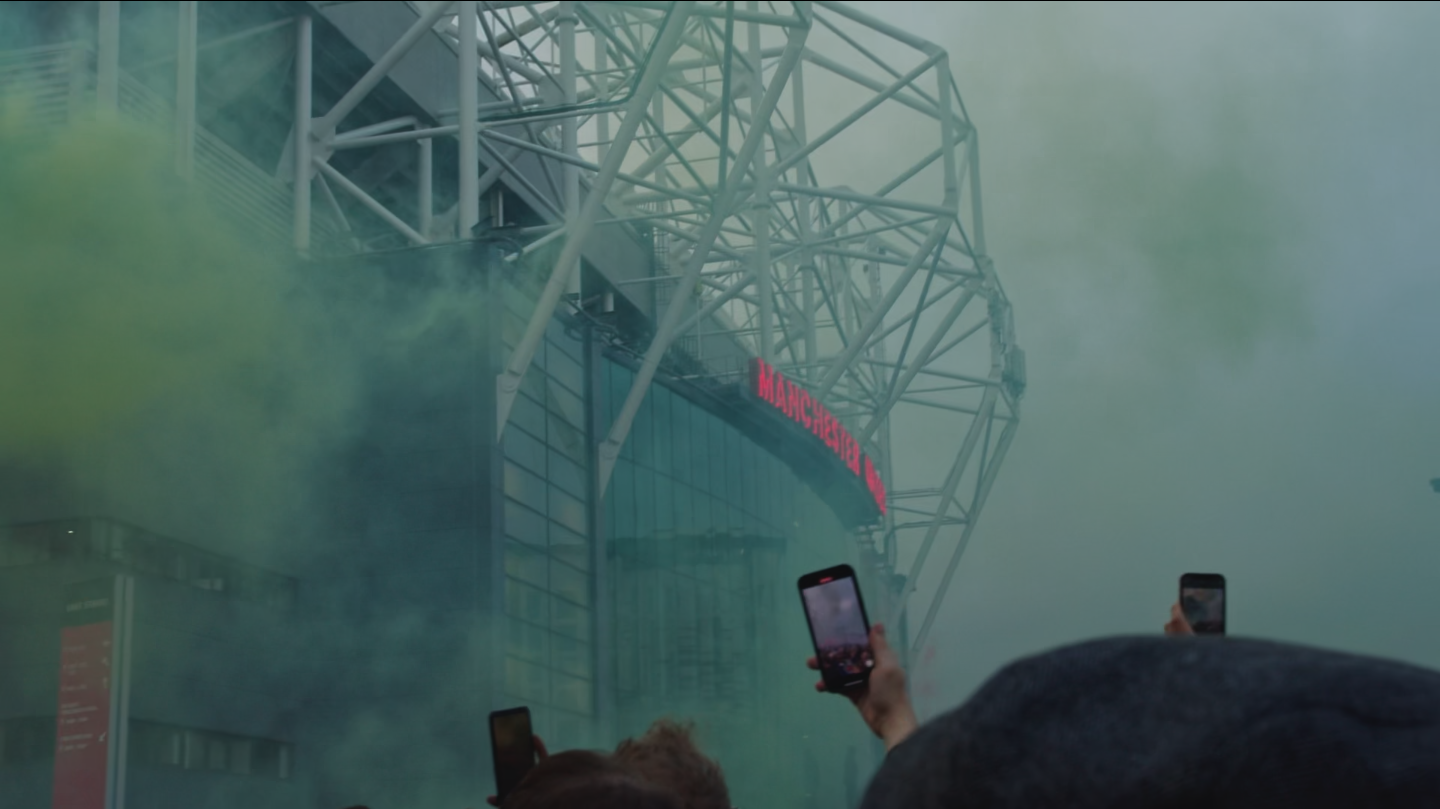
Laurie Whitwell on the future of United's ownership
Laurie Whitwell on the future of United's ownership
What comes next?
The two leading candidates as new owners are seen to be Sir Jim Ratcliffe of the Ineos group and Qatar’s Sheikh Jassim bin Hamad Al Thani.
However, there are questions over both potential new owners.
Laurie Whitwell explains that Ratcliffe’s bid would also include debt, however ‘that debt wouldn't be on the club, rather on Ineos’.
While Sheikh Jassim has ties to the Qatari state, it has been made clear that this would be a private investment, some still have concerns around this link.
Can United fans really be hopeful then?
Kieran Maguire thinks there might be reason for caution.
He said: “I don’t think there is going to be a sale, certainly not a full sale. In my view the business isn’t worth it.
“Whoever acquires Manchester United is going to have to address the elephant in the room, that Old Trafford is not fit for a 21st century stadium. A new owner would want to address that.”
Jay Motty disagrees and thinks there is reason for hope.
“We should all take a moment when the Glazers go and celebrate because we have waited 18 long years for this,” he said.
“We should always hold the owners to account whoever that is.
“But, let’s take a moment, celebrate the fact that the Glazers have gone and then we can start worrying about the new owners and question them and challenge them.”
Celebrations there will be if and when the Glazers do go. But for who remains to be seen.
One thing is for certain, the issues and debate surrounding the ownership of Manchester United are far from over.
